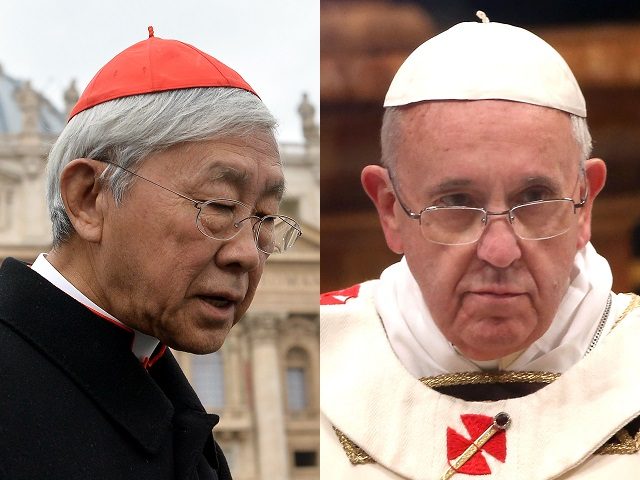ROME — The dean of the college of cardinals in Rome has written a letter denouncing Hong Kong Cardinal Joseph Zen, who has been fiercely critical of the Vatican’s rapprochement with the Chinese Communist Party (CCP).
In an article titled “The Vatican declares war on Cardinal Zen,” veteran Vatican journalist Riccardo Cascioli wrote this weekend that Cardinal Re “obviously did not write on his own initiative” but his letter “is truly a call to his brother cardinals to isolate Cardinal Zen.”
In that letter, Cardinal Re asserts that the secret 2018 Vatican provisional accord with the CCP on the matter of episcopal appointments, in which the Vatican ceded to the CCP some of its authority to name bishops, was fundamentally in accord with the policies of Popes John Paul II and Benedict XVI.
The cardinal also insists that the expression “independent Church” used by the Chinese government in describing the state-run Catholic Chinese Patriotic Association “cannot be interpreted in an absolute manner, as ‘separation’ from the Pope, as it has been in the past.”
In his analysis of the Re missive, Mr. Cascioli asserts that the letter “contains misleading statements, affirming that there is a continuity between the approach of this pontificate with that of previous pontificates, when in fact no such continuity exists.”
It also makes “very grave misrepresentations,” Cascioli declares, including “a change in doctrine regarding the possibility of independent Churches.”
In this way, Cardinal Re’s letter constitutes “a fierce and unheard-of frontal attack” against the 88-year-old bishop emeritus of Hong Kong, Cascioli writes, because he has been an “intrepid opponent of the secret agreement between China and the Holy See.”
The Vatican journalist also notes that the letter is Cardinal Re’s first official act as Dean of the College, since he was only appointed to this role on January 18.
By its own declaration, the letter is meant as a response to a letter that Cardinal Zen addressed to his brother cardinals last September 27, but Cardinal Re also makes explicit reference to several other interventions by Zen, who is a well-known advocate for so-called underground Catholics in the country.
In his letter to his brother cardinals, Zen accused the Holy See of encouraging the faithful in China “to join a schismatic church (independent of the pope and under the orders of the communist party),” since for the first time ever, the Vatican has given permission to Chinese clergy to enlist in the Chinese Catholic Patriotic Association.
Regarding the Vatican’s deal with China regarding the naming of Catholic bishops, the cardinal stated that “the whole situation after the signing of the accord clearly shows that nothing has changed,” referring to ongoing persecution of Christians by the Communist regime.
According to Mr. Cascioli, the affirmations made by Cardinal Re regarding continuity of the present approach to Sino-Vatican relations with past pontificates “constitute a grave distortion of reality, because it is obvious that Saint John Paul II and Benedict XVI took an approach that is markedly different from that of the present pontificate.”
Both Pope John Paul and Pope Benedict “consistently reaffirmed the non-negotiable points for an agreement, which had to respect religious freedom and the identity of the Church, including the freedom to appoint bishops,” Cascioli writes.
“The harsh responses of Saint John Paul II to Chinese provocations over the appointment of bishops bears witness to this, as does his decision to proceed with the canonizations of the Chinese martyrs on October 1, 2000, despite the harsh objections of Beijing,” he asserts.
Cardinal Re “should explain to us why it is that persecution against Catholics in China has intensified since the agreement was signed while the Holy See has remained completely silent,” Cascioli declares.

COMMENTS
Please let us know if you're having issues with commenting.